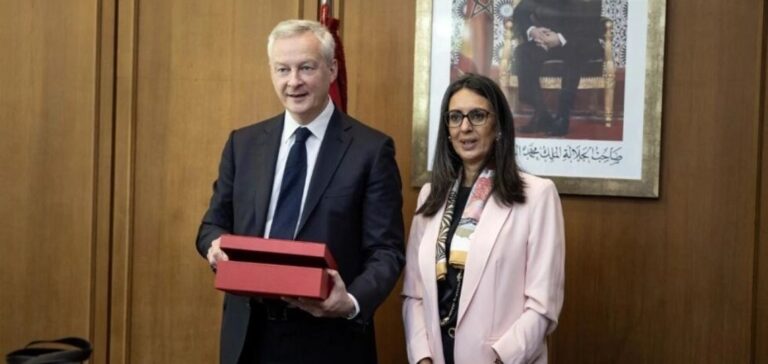Bruno Le Maire, France’s Minister of the Economy, has stressed the importance of a new era of cooperation with Morocco in the field of low-carbon energy. This collaboration will include the development of hydrogen, wind and solar energy. He also offered to help Morocco, which does not yet have any nuclear power plants, to set up small and medium-sized nuclear reactors.
Morocco’s renewable energy ambitions
Morocco, through its Minister of the Economy, Nadia Fettah, affirmed that the energy project represents the very essence of this renewed partnership. The country, which has invested heavily in renewable energies over the past fifteen years, currently generates 38% of its electricity from renewable sources, with the aim of reaching 52% by 2030.
Expanding rail mobility
Cooperation doesn’t stop at renewable energies; rail mobility is also a priority. Morocco is planning to extend its high-speed line to Agadir, adding to its existing high-speed rail network linking Tangier and Casablanca, a project to be carried out by Alstom.
Strengthening bilateral relations
Bruno Le Maire’s visit is the third by a French minister to Morocco this week, marking a warming of Franco-Moroccan relations. Two working groups will be set up to deepen discussions on decarbonized energies and rail mobility, testifying to the strong ties between the two nations.
The two nations’ focus on low-carbon energy and rail transport is strategic, aiming not only to meet climate challenges but also to enhance energy security and transport efficiency in the region.






















